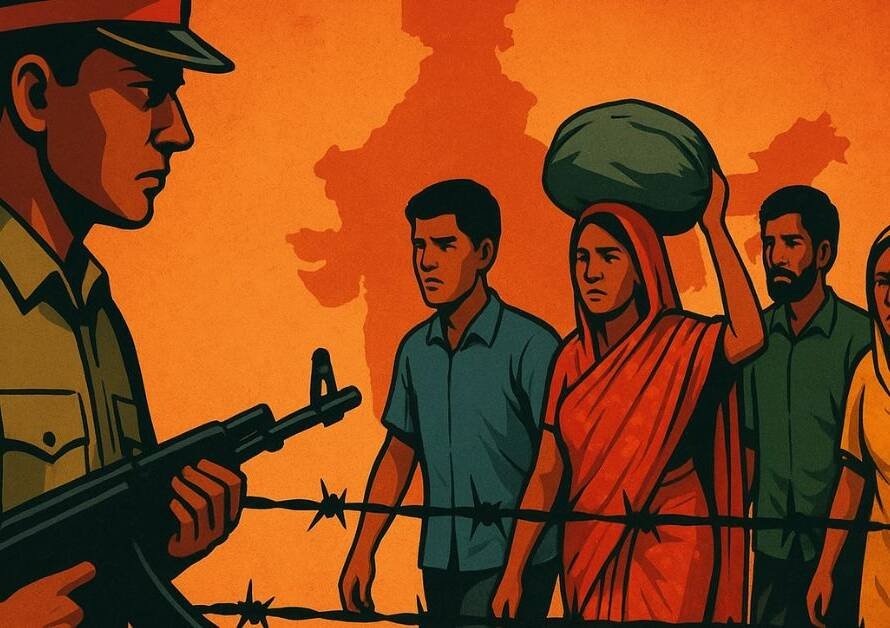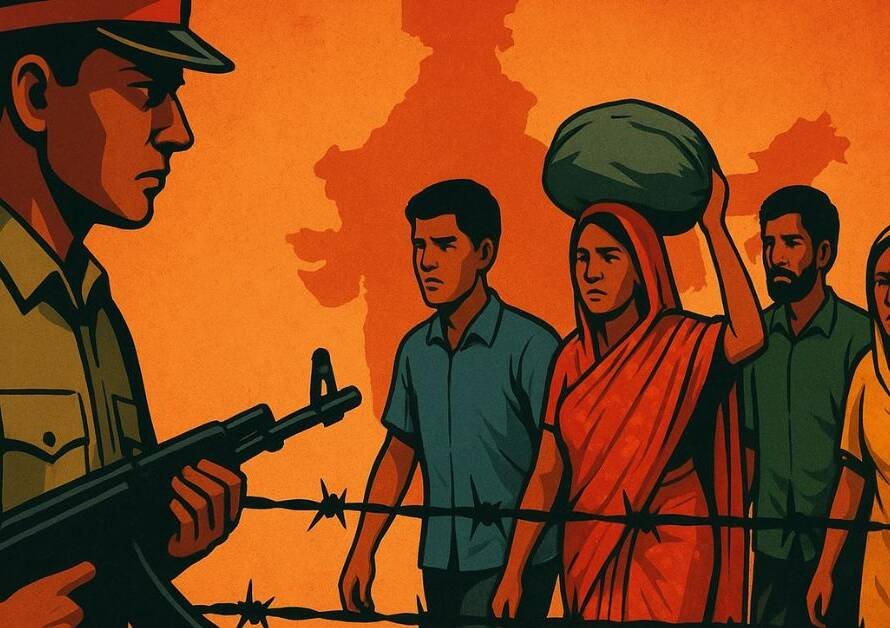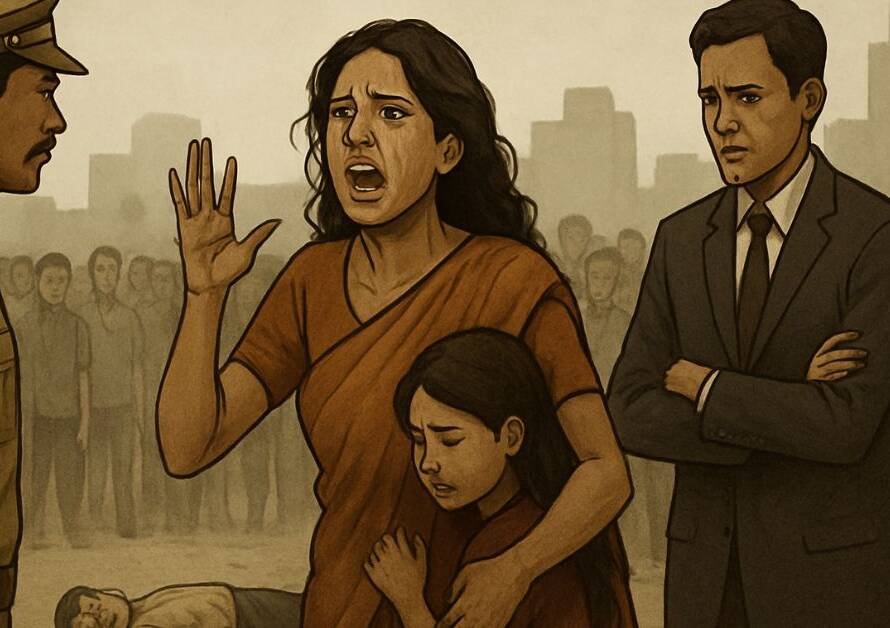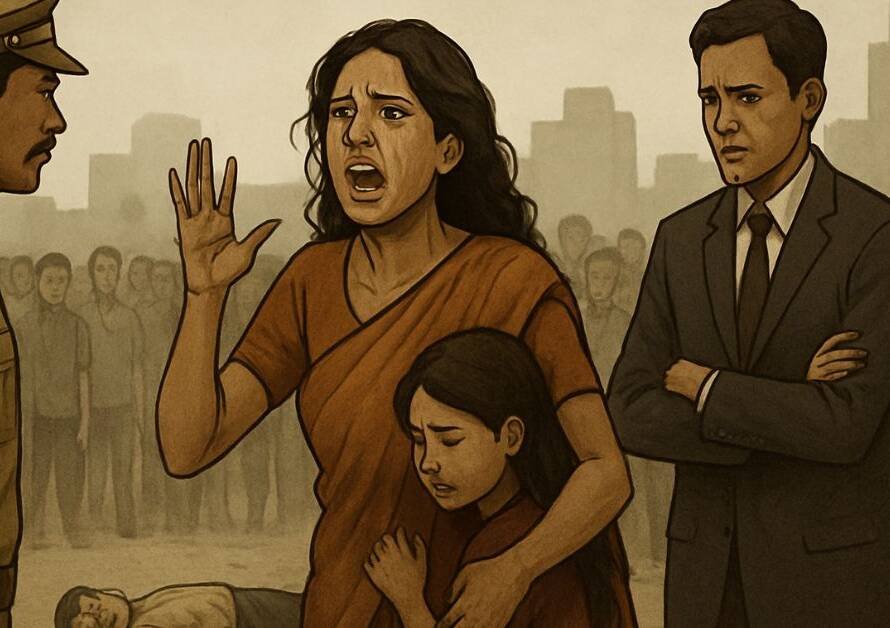The rise of Islamic jihad, terrorism, and population explosion are increasingly being discussed as critical threats to humanity, world peace, and harmony. The themes raised by figures like Geert Wilders, Donald Trump, and Julia Gillard reflect the growing concerns across Europe, the United States, Australia, and beyond regarding the socio-political challenges posed by radical Islamic ideologies, unchecked population growth, and the failure of integration in many Muslim communities. This narrative explores these issues, emphasizing the perceived dangers to global stability and the future of democratic societies.
- Islamic Jihad and Terrorism: Global Threats to Peace
Islamic jihad and terrorism have been pressing concerns for global security, particularly in the post-9/11 world. Extremist organizations, such as ISIS, Al-Qaeda, and others, have spread violence across the globe under the banner of jihad, advocating for the establishment of an Islamic caliphate. These groups operate on the belief that their radical interpretation of Islam justifies the use of violence to impose Sharia law, resulting in horrific attacks on civilians and the destabilization of entire regions.
Geert Wilders, in his speech, emphasized how this extremist ideology is no longer confined to the Middle East but has increasingly found a foothold in Europe. Wilders points to the creation of “parallel societies” in European cities, where radical Muslim communities have isolated themselves, resisting integration into Western culture and posing a direct challenge to democratic values. The rise of Sharia courts in the UK and violent riots in French suburbs illustrate the tension between Muslim communities and the broader society.
The Danger of Jihadist Ideology:
The jihadist ideology is perceived not merely as a religious belief but as a political movement that aims to dismantle the freedoms and liberties enjoyed in democratic nations. Wilders and others argue that this is an existential threat to Western civilization, as seen in the attacks on freedom of speech, with incidents like the Charlie Hebdo massacre and the beheading of a French teacher who dared to display cartoons of the Prophet Muhammad.
These acts of terror are not isolated; they represent a concerted effort to silence criticism and impose a radical vision of Islam on the world. The threat extends beyond violence—there is a growing concern about political influence, where large Muslim populations in Europe could form decisive voting blocs, pushing for policies that align with Islamic values. - Population Explosion: A Silent Threat
One of the less discussed but equally alarming aspects of the Islamic influence in Europe and other parts of the world is the demographic shift caused by the rapid growth of Muslim populations. The birth rate among Muslim communities in Europe is significantly higher than that of the native populations, leading to predictions that, within a few decades, many European countries will have Muslim majorities. This demographic change could drastically alter the cultural and political landscape of Europe, a scenario Wilders warns could lead to the eventual Islamization of the continent.
Population explosion also creates economic pressures, as many countries struggle to integrate large numbers of immigrants into the workforce and provide essential services such as housing, education, and healthcare. In nations where unemployment is already high, this can lead to social unrest and fuel nationalist and anti-immigrant sentiments.
Global Implications:
While the immediate concerns are focused on Europe, the implications of this population growth extend globally. In countries like India, Bangladesh, and Pakistan, population pressures are leading to resource depletion, poverty, and increased religious tensions. The fear is that as populations grow, and radical ideologies spread, we could see more migration and the export of these issues to other parts of the world, including North America and Australia. - The Role of Islamic Jihad in Destabilizing Societies
Wilders’ speech also connects the rise of Islamic extremism to a broader jihad against the West, framing the Israeli-Palestinian conflict as part of this global struggle. He argues that if Israel were to fall, it would embolden jihadists and signal the beginning of the end for Western democracies. This view has been echoed by other world leaders, such as Donald Trump, who called for stricter measures to prevent radical Islam from taking hold in the United States, including monitoring mosques and restricting the influence of Sharia law.
Examples of Societal Destabilization:
In France, the response to the beheading of a teacher for showing cartoons of Muhammad was a public display of the cartoons, signaling the nation’s defiance in the face of Islamic extremism. This has sparked a larger movement against Islamic influence in France, leading to the closure of mosques and the arrest of radical imams.
In the UK, the rise of Sharia courts has caused concern among those who see them as undermining British law and values, particularly regarding women’s rights and freedom of expression.
The spread of jihadist violence has reached as far as the United States, with terror attacks like the Boston Marathon bombing and the mass shooting in San Bernardino, California. - Resistance and National Identity
In response to the growing influence of Islam, several world leaders, including Geert Wilders, Donald Trump, and Julia Gillard, have called for decisive action to protect national identity and prevent the spread of radical Islamic ideologies. These leaders argue that immigrants must adapt to the culture and values of their host countries, rather than imposing their religious beliefs on the native populations.
Donald Trump’s statement, “Immigrants, not Americans, must adapt… Take it or leave it,” reflects this sentiment. The emphasis is on integration and the protection of national culture. In Australia, Prime Minister Julia Gillard’s firm stance against Sharia law and the inspection of mosques represents a broader global push to contain radical Islam. - The Path Forward: Building National Unity
The challenge for countries facing the rise of Islamic extremism and rapid population growth is how to maintain national unity and protect their democratic values while addressing these complex issues. The call for resistance is strong, but it must be balanced with efforts to ensure that legitimate concerns about security and integration do not spill over into xenophobia or Islamophobia.
In India, discussions have begun about whether the country could benefit from a figure like Ashin Wirathu of Myanmar, who led a nationalist movement to protect Buddhist culture from the perceived threat of Islam. While controversial, Wirathu’s methods of economic boycotts and nationalistic symbols (such as the number 969) have been effective in rallying Buddhists to his cause. Similarly, some Hindus in India are exploring the idea of a unifying symbol, like ‘108’, to promote Sanatan Dharma and protect their cultural heritage from perceived external threats.
Conclusion: The Need for Global Vigilance
Islamic jihad, terrorism, and population explosion present significant threats to world peace and harmony. Figures like Geert Wilders have highlighted the dangers of unchecked Islamic influence, particularly in Europe, where rapid demographic changes could lead to the erosion of democratic values and the rise of parallel societies governed by Sharia law. The global community must remain vigilant, addressing these issues with both firm resistance and measured dialogue, ensuring that the fight against extremism does not turn into a war against peaceful, law-abiding Muslim communities.
This narrative underscores the importance of national unity, cultural preservation, and the need for a proactive stance against the forces that threaten global peace and stability. It calls for immediate action to protect freedom and democracy from the destabilizing forces of Islamic extremism and population growth while promoting integration and coexistence.
Islamic Jihad, Terrorism, and Population Explosion: The Biggest Threat to Humanity, World Peace, and Harmony - Geert Wilders’ speech focuses on the growing Islamic influence in Europe, which he argues poses a threat to cultural identity, political freedom, and social harmony. The concerns about Islamic jihad, terrorism, and population explosion are often associated with the fear of increasing extremism, cultural conflict, and social fragmentation. Here are some relevant examples and case studies to illustrate these concerns:
- The 9/11 Attacks (USA, 2001)
Example: On September 11, 2001, Al-Qaeda, an Islamic jihadist group, carried out coordinated terrorist attacks on the United States, killing nearly 3,000 people. The attacks targeted key symbols of American power, including the World Trade Center and the Pentagon.
Relevance: This was one of the most significant acts of Islamic terrorism on Western soil, which not only claimed thousands of lives but also led to long-lasting global repercussions. It intensified the global “War on Terror,” raising concerns about Islamic extremism and how it could affect international peace and security.
Impact: The attacks triggered wars in Afghanistan and Iraq and changed global security policies, leading to a rise in surveillance and anti-terrorism measures in many countries. - 2015 Paris Attacks (France)
Example: On November 13, 2015, a series of coordinated terrorist attacks were carried out by ISIS operatives in Paris, resulting in 130 deaths and hundreds of injuries. The attackers targeted crowded public spaces, including a stadium, concert hall, and restaurants.
Relevance: The Paris attacks highlighted the increasing danger of homegrown extremism and how terrorist organizations like ISIS could influence local Muslim populations, particularly those that feel marginalized or alienated in their host countries.
Impact: France responded with heightened security, stricter laws, and military operations against ISIS in Syria and Iraq. The attacks also sparked a debate on the integration of Muslim immigrants in Europe and concerns about the rise of Islamic extremism within Western democracies. - Sharia Law in Britain
Example: Over the last two decades, there have been reports of “Sharia courts” operating in parts of the United Kingdom. These courts adjudicate civil disputes, particularly within Muslim communities, and often handle family matters like divorce, inheritance, and custody according to Islamic law.
Relevance: The existence of Sharia courts raises questions about the integration of Muslim communities into broader European legal systems. Critics argue that these courts undermine the rule of law by creating a parallel system, particularly in matters involving gender rights, where women may face discrimination.
Impact: There has been widespread debate in Britain about the role of Sharia in public life, with some calling for greater regulation and oversight of these courts. Concerns about Islamic enclaves developing into parallel societies are often cited in discussions about cultural integration. - Muslim Population Growth in Europe
Case Study: According to various reports, Muslim populations in Europe are growing due to both immigration and higher birth rates among Muslim families compared to the general population. For example, in France, Muslims make up about 8% of the population, and in Sweden, the Muslim population could rise to 30% by 2050 based on current trends.
Relevance: Population growth, combined with the lack of integration in certain communities, can lead to cultural clashes and tensions. Some European leaders, like Wilders, argue that this demographic change could shift the political and social balance, leading to demands for policies aligned with Islamic values, including calls for Sharia law or changes in free speech policies.
Impact: These trends have fueled political movements across Europe that call for stricter immigration controls, assimilation policies, and a halt to further Muslim immigration. For example, in Germany, the rise of the Alternative for Germany (AfD) party has been partly driven by fears of Islamization following Angela Merkel’s decision to accept large numbers of refugees during the 2015 migrant crisis. - Israeli-Palestinian Conflict
Example: The ongoing conflict between Israel and Palestine has been framed by many as part of a broader struggle between Islamic jihadists and Western-aligned democracies. Organizations like Hamas, considered a terrorist organization by several countries, seek to establish an Islamic state in place of Israel.
Relevance: The conflict is often cited as a microcosm of the larger jihadist ideology, which aims to overthrow non-Islamic governments and establish Islamic rule. The Palestinian-Israeli conflict is viewed by some as a battleground between Islamic extremism and Western democratic ideals.
Impact: Support for Israel has become a key issue for many Western nations, particularly in the context of the global fight against terrorism. Geert Wilders, for example, argues that Israel is the first line of defense against jihad and that if Israel falls, it would embolden Islamic extremists worldwide. - Population Explosion in Bangladesh
Case Study: Bangladesh, one of the most densely populated countries in the world, faces challenges related to population growth. With a significant Muslim majority, the country has seen its population increase from 75 million in 1971 to over 160 million today.
Relevance: The rapid population growth in Bangladesh has implications for resource distribution, poverty, and migration. Many Bangladeshis have migrated to neighboring India, leading to tensions over illegal immigration, particularly in border states like Assam, where fears of demographic shifts have fueled ethnic and religious conflicts.
Impact: The population explosion in Bangladesh and the resulting migration have contributed to political and social instability in the region. In India, the presence of Muslim migrants has been used by some political groups to stoke fears about cultural change and threats to national identity. - Conclusion:
- The examples and case studies above illustrate the complex dynamics of Islamic jihad, terrorism, and population explosion as perceived threats to global peace, security, and cultural harmony. While these issues are real, they must be addressed with care to avoid fueling xenophobia, religious intolerance, and division within societies.Islamic Jihad, Terrorism, and Population Explosion: The Biggest Threat to Humanity, World Peace, and Harmony
- Geert Wilders’ speech focuses on the growing Islamic influence in Europe, which he argues poses a threat to cultural identity, political freedom, and social harmony. The concerns about Islamic jihad, terrorism, and population explosion are often associated with the fear of increasing extremism, cultural conflict, and social fragmentation. Here are some relevant examples and case studies to illustrate these concerns:
- The 9/11 Attacks (USA, 2001)
Example: On September 11, 2001, Al-Qaeda, an Islamic jihadist group, carried out coordinated terrorist attacks on the United States, killing nearly 3,000 people. The attacks targeted key symbols of American power, including the World Trade Center and the Pentagon.
Relevance: This was one of the most significant acts of Islamic terrorism on Western soil, which not only claimed thousands of lives but also led to long-lasting global repercussions. It intensified the global “War on Terror,” raising concerns about Islamic extremism and how it could affect international peace and security.
Impact: The attacks triggered wars in Afghanistan and Iraq and changed global security policies, leading to a rise in surveillance and anti-terrorism measures in many countries. - 2015 Paris Attacks (France)
Example: On November 13, 2015, a series of coordinated terrorist attacks were carried out by ISIS operatives in Paris, resulting in 130 deaths and hundreds of injuries. The attackers targeted crowded public spaces, including a stadium, concert hall, and restaurants.
Relevance: The Paris attacks highlighted the increasing danger of homegrown extremism and how terrorist organizations like ISIS could influence local Muslim populations, particularly those that feel marginalized or alienated in their host countries.
Impact: France responded with heightened security, stricter laws, and military operations against ISIS in Syria and Iraq. The attacks also sparked a debate on the integration of Muslim immigrants in Europe and concerns about the rise of Islamic extremism within Western democracies. - Sharia Law in Britain
Example: Over the last two decades, there have been reports of “Sharia courts” operating in parts of the United Kingdom. These courts adjudicate civil disputes, particularly within Muslim communities, and often handle family matters like divorce, inheritance, and custody according to Islamic law.
Relevance: The existence of Sharia courts raises questions about the integration of Muslim communities into broader European legal systems. Critics argue that these courts undermine the rule of law by creating a parallel system, particularly in matters involving gender rights, where women may face discrimination.
Impact: There has been widespread debate in Britain about the role of Sharia in public life, with some calling for greater regulation and oversight of these courts. Concerns about Islamic enclaves developing into parallel societies are often cited in discussions about cultural integration. - Muslim Population Growth in Europe
Case Study: According to various reports, Muslim populations in Europe are growing due to both immigration and higher birth rates among Muslim families compared to the general population. For example, in France, Muslims make up about 8% of the population, and in Sweden, the Muslim population could rise to 30% by 2050 based on current trends.
Relevance: Population growth, combined with the lack of integration in certain communities, can lead to cultural clashes and tensions. Some European leaders, like Wilders, argue that this demographic change could shift the political and social balance, leading to demands for policies aligned with Islamic values, including calls for Sharia law or changes in free speech policies.
Impact: These trends have fueled political movements across Europe that call for stricter immigration controls, assimilation policies, and a halt to further Muslim immigration. For example, in Germany, the rise of the Alternative for Germany (AfD) party has been partly driven by fears of Islamization following Angela Merkel’s decision to accept large numbers of refugees during the 2015 migrant crisis. - Israeli-Palestinian Conflict
Example: The ongoing conflict between Israel and Palestine has been framed by many as part of a broader struggle between Islamic jihadists and Western-aligned democracies. Organizations like Hamas, considered a terrorist organization by several countries, seek to establish an Islamic state in place of Israel.
Relevance: The conflict is often cited as a microcosm of the larger jihadist ideology, which aims to overthrow non-Islamic governments and establish Islamic rule. The Palestinian-Israeli conflict is viewed by some as a battleground between Islamic extremism and Western democratic ideals.
Impact: Support for Israel has become a key issue for many Western nations, particularly in the context of the global fight against terrorism. Geert Wilders, for example, argues that Israel is the first line of defense against jihad and that if Israel falls, it would embolden Islamic extremists worldwide. - Population Explosion in Bangladesh
Case Study: Bangladesh, one of the most densely populated countries in the world, faces challenges related to population growth. With a significant Muslim majority, the country has seen its population increase from 75 million in 1971 to over 160 million today.
Relevance: The rapid population growth in Bangladesh has implications for resource distribution, poverty, and migration. Many Bangladeshis have migrated to neighboring India, leading to tensions over illegal immigration, particularly in border states like Assam, where fears of demographic shifts have fueled ethnic and religious conflicts.
Impact: The population explosion in Bangladesh and the resulting migration have contributed to political and social instability in the region. In India, the presence of Muslim migrants has been used by some political groups to stoke fears about cultural change and threats to national identity. - Conclusion:
- The examples and case studies above illustrate the complex dynamics of Islamic jihad, terrorism, and population explosion as perceived threats to global peace, security, and cultural harmony. While these issues are real, they must be addressed with care to avoid fueling xenophobia, religious intolerance, and division within societies.
How democratic countries around the world are dealing with Islamic jihad, terrorism, and population-related challenges, with more examples and case studies: - Counter-Terrorism Measures
Democratic nations often adopt aggressive counter-terrorism strategies that involve a combination of military action, intelligence, border security, and diplomatic efforts to combat terrorist threats. These measures are primarily aimed at disrupting terrorist networks and preventing attacks on their soil.
Example: The USA’s ‘War on Terror’
Following the September 11, 2001 attacks, the U.S. government, under President George W. Bush, launched the “War on Terror.” This global campaign targeted terrorist groups like al-Qaeda and later, the Islamic State (ISIS), through military interventions in Afghanistan and Iraq, drone strikes, intelligence operations, and international collaborations. The USA’s Department of Homeland Security was established to strengthen counter-terrorism efforts domestically, while the Patriot Act allowed for enhanced surveillance and counter-terrorism measures.
Impact: The “War on Terror” disrupted key terrorist networks and led to the killing of Osama bin Laden. However, the prolonged wars in Iraq and Afghanistan caused significant civilian casualties and raised questions about the balance between security and civil liberties.
Case Study: France’s Vigipirate and State of Emergency
France has faced several Islamic terrorist attacks, such as the 2015 Paris attacks and the 2016 Nice truck attack. In response, France activated “Vigipirate,” a permanent national security alert system. After the 2015 attacks, the government declared a state of emergency, giving law enforcement expanded powers, including house arrests, warrantless searches, and surveillance. France also passed a counter-terrorism law in 2017 that allowed these emergency measures to be made permanent.
Impact: The state of emergency disrupted several planned terrorist attacks, but critics argue that it disproportionately targeted Muslim communities and led to increased Islamophobia. - Deradicalization and Preventing Violent Extremism (PVE) Programs
Many democratic countries have turned to deradicalization programs and Preventing Violent Extremism (PVE) strategies. These programs aim to prevent individuals from becoming radicalized and to rehabilitate those who have been involved with extremist ideologies.
Example: UK’s Prevent Strategy
The UK launched the Prevent Strategy in 2003 as part of its broader counter-terrorism policy to stop individuals from supporting or becoming involved in terrorism. This program focuses on community engagement, identifying individuals at risk of radicalization, and offering interventions such as counseling, education, and vocational training. The UK’s Channel program, part of Prevent, works with individuals identified as being at risk of joining extremist groups.
Impact: Prevent has been credited with disrupting potential terrorist activities at early stages. However, it has been criticized for disproportionately focusing on Muslim communities and creating feelings of alienation and suspicion.
Case Study: Denmark’s Aarhus Model
Denmark’s Aarhus Model is one of the most well-known deradicalization programs in the world. It is focused on rehabilitating individuals who have returned from conflict zones like Syria and Iraq or those who are at risk of joining terrorist groups. The Aarhus Model involves counseling, education, and reintegration into society. It adopts a “soft” approach that aims to treat radicalized individuals as potential victims rather than criminals.
Impact: This model has had some success, with several former jihadists being reintegrated into society without further incidents of extremism. However, it has also faced criticism for being too lenient. - Strengthening Border Security and Immigration Policies
Democratic nations have also implemented stricter border security and immigration policies to curb the potential influx of radicalized individuals and to monitor extremist activities.
Example: The USA’s Travel Ban
In 2017, President Donald Trump enacted a travel ban targeting several Muslim-majority countries, including Iran, Libya, Syria, and Yemen, as a means to prevent the entry of individuals from nations with high risks of terrorism. The travel ban was part of the broader immigration crackdown aimed at enhancing national security.
Impact: While the travel ban was justified as a security measure, it faced widespread criticism for promoting Islamophobia and for harming innocent families seeking refuge. Legal challenges followed, and the ban was amended several times before being repealed by the Biden administration in 2021.
Case Study: Australia’s Offshore Detention and Immigration Policy
Australia has adopted one of the toughest immigration policies, particularly in relation to asylum seekers. The country established offshore detention centers in places like Nauru and Papua New Guinea to house asylum seekers and prevent them from entering the mainland. This policy aims to discourage illegal immigration and prevent radicalized individuals from exploiting refugee routes.
Impact: Australia’s policy has been effective in reducing the number of unauthorized arrivals by sea. However, it has been widely condemned by human rights organizations for violating international human rights laws, as asylum seekers face poor living conditions and psychological trauma in detention. - Legal Reforms and Domestic Security Policies
Many democratic countries have introduced laws that strengthen their ability to prosecute terrorists, prevent radicalization, and monitor individuals involved in extremist activities.
Example: India’s Unlawful Activities (Prevention) Act (UAPA)
India, which has faced numerous attacks from Islamic extremist groups such as Lashkar-e-Taiba, has strengthened its anti-terror laws through the Unlawful Activities (Prevention) Act (UAPA). This law allows authorities to designate individuals as terrorists and freeze their assets. It also gives law enforcement extended powers of arrest and detention for terrorism-related offenses.
Impact: The UAPA has empowered Indian authorities to take preemptive actions against terrorism. However, there have been concerns about the misuse of the law to target political dissidents and activists, particularly in the Muslim community.
Case Study: Israel’s Anti-Terror Legislation
Israel has long faced threats from Islamic jihadist groups like Hamas and Hezbollah. In response, the Israeli government has passed a series of anti-terror laws, allowing authorities to detain suspects without trial (administrative detention), use military courts to try terrorism cases, and conduct preemptive strikes on terrorist infrastructure.
Impact: Israel’s tough stance on terrorism has been effective in preventing major attacks on its soil. However, the use of administrative detention and military courts has been criticized for undermining human rights and due process. - Addressing Population Explosion and Migration Concerns
Democratic countries have also expressed concerns over rapid population growth and immigration from Muslim-majority countries, seeing it as a challenge to their societal cohesion, resources, and security.
Example: Europe’s Response to the Migration Crisis
The European Union (EU) faced a major migration crisis in 2015, with millions of refugees and migrants entering Europe from conflict zones in the Middle East and North Africa. In response, countries like Hungary and Poland implemented strict immigration controls, including border fences and rejecting EU quotas for accepting refugees.
Impact: While these policies have reduced the influx of migrants, they have sparked tensions within the EU, with some accusing these countries of violating human rights obligations. The rise of right-wing nationalist movements across Europe has been partly fueled by fears of Islamization due to unchecked migration.
Case Study: France’s Population Policy
France has witnessed high birth rates among its Muslim immigrant population, which has led to concerns about integration and the preservation of French secular values. In response, the French government has tightened its immigration policies and emphasized the importance of secularism (laïcité) in public life, banning religious symbols like the hijab in schools and government buildings.
Impact: While these measures are intended to promote integration, they have often resulted in further alienation of the Muslim community, leading to social unrest in some areas. - International Cooperation and Multilateral Efforts
Terrorism is a global issue, and many democratic countries work together through international organizations and coalitions to fight terrorism.
Example: NATO’s Role in Counter-Terrorism
NATO (North Atlantic Treaty Organization) has been actively involved in counter-terrorism efforts, especially after 9/11. NATO members, including the U.S., the UK, and several European countries, have cooperated in missions in Afghanistan, Iraq, and Syria to combat terrorism and dismantle extremist networks.
Impact: NATO’s involvement has helped stabilize regions affected by terrorism, but the prolonged conflicts and civilian casualties have led to questions about the effectiveness and sustainability of these interventions.
Case Study: The Global Coalition Against ISIS
The Global Coalition Against ISIS, composed of over 80 countries and organizations, was formed in 2014 to coordinate efforts to defeat ISIS. The coalition has focused on military action, cutting off financing, preventing the flow of foreign fighters, and addressing ISIS propaganda.
Impact: The coalition’s efforts, particularly in Iraq and Syria, have successfully weakened ISIS, reducing its territorial control. However, ISIS continues to operate as a decentralized terror network, and the coalition has faced challenges in completely eradicating the group’s ideology. - Conclusion
- Dealing with Islamic jihad, terrorism, and population challenges requires a multifaceted approach. Democratic countries around the world have implemented a range of policies and strategies—some focused on security and counter-terrorism, others on integration and deradicalization. While these efforts have had varying degrees of success, they often face the challenge of balancing security with human rights and civil liberties. Moreover, effective solutions must also address the root causes of terrorism, including political instability, economic disparity, and ideological extremism, to ensure lasting peace and harmony.







